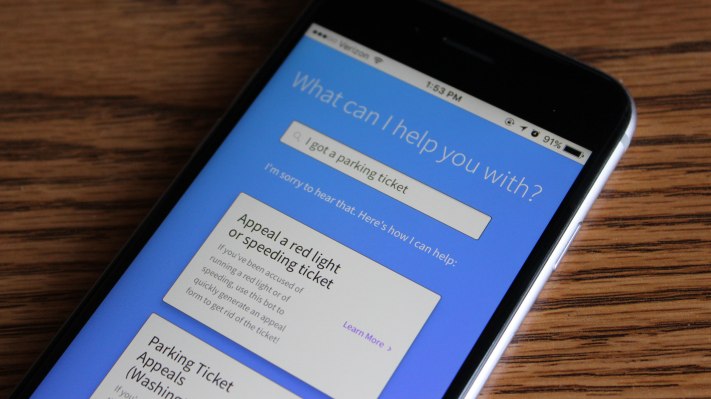Since making headlines last year with his DoNotPay chatbot to help people fight their parking tickets, 19-year-old Joshua Browder has been heads-down building in new capabilities on his quest to democratize legal help by automating as many common legal needs as possible. Today, Browder is pushing out 1,000 new bots that can assist people in filling out transactional legal forms in all 50 U.S. states and the U.K.
As Browder slowly added new capabilities to his initial DoNotPay bot, many early users started to become confused about what the tool could actually be used for. It’s for this reason that he decided to hold back and release as many legal assistance features as possible at one time to rebrand as a full-service consumer legal tool.
With today’s launch, DoNotPay can help anyone fill out transactional forms for maternity leave, landlord contract violations and more. The 1,000+ bots are fully searchable in natural language — users simply state the problem they are trying to solve and DoNotPay will automatically redirect them to the relevant assistant.
Browder had to take into account the sheer number of sub-forms and regional differences in law when building the tool. DoNotPay can automatically verify your location and feed you the relevant information for your area.
With all the growth, it would seem natural for DoNotPay to take on venture financing and contemplate monetization, but so far Browder has pushed off VC financing and has been insistent that his creation will remain free. He is currently working as an entrepreneur-in-residence (EIR) at Greylock and receiving advice from the firm.
Moving forward, Browder wants to go after more complex legal processes like marriages, divorces and bankruptcies. IBM has offered its Watson technology for free to DoNotPay, making it possible for users to express their legal questions in natural language. Eventually, the goal will be to build custom internal technology, but for now Browder’s priorities are elsewhere.
Instead, Browder is working on increasing engagement. He says that many users utilize the service once every few months, but ideally the platform will be able to handle enough issues that users will use it more frequently.
Once this happens, the goal is to monetize. Browder says that he is still thinking about what he wants to do, but part of the plan is to allow businesses to sponsor specific legal bots — think dealership sponsoring the parking ticket bot for a particular city.
Having already saved people $9.3 million disputing 375,000 parking tickets, DoNotPay has already shown it can have a real-world impact. The tool is a fantastic case study for why people should care about AI, even if it’s not revolutionary on the tech side.
It’s easy to see why venture capitalists care about locking down proprietary IP, secret sauce algorithms and machine learning PhDs, but at the end of the day, plenty of AI’s impact on the world will come from determined tinkerers painstakingly building meaningful products on top of technologies built by others.
